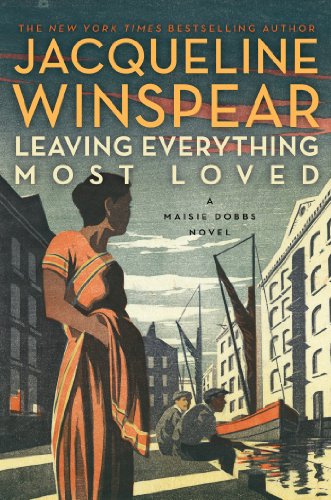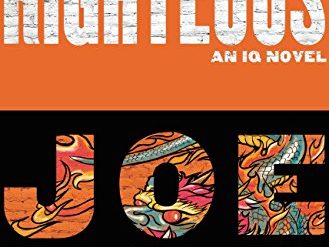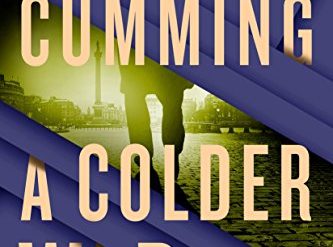
London, July 1933: The Great Depression is underway in full force. Adolf Hitler has seized power in Germany, and Sir Oswald Mosley‘s British Union of Fascists is striking fear into the hearts of the Establishment. But Maisie Dobbs has problems of her own.
Estimated reading time: 4 minutes
Now 36, the successful “psychologist and investigator” is restless. Having grown up poor, she is uncomfortable with the great fortune willed to her by her late mentor, Dr. Maurice Blanche, and resisting the entreaties of her wealthy and aristocratic live-in lover, James Compton, to close her practice and become his wife. Maisie wants to leave it all behind and travel to India in Maurice’s footsteps. All that holds her back are her aging father, Frankie Dobbs, and the two employees who depend on her, Billy Beale and Sandra Tapley.
Thus the scene is set in Leaving Everything Most Loved, the 10th volume in Jacqueline Winspear‘s engrossing Maisie Dobbs series.
Maisie Dobbs explores the world of Indian immigrants
While Maisie teeters on the edge of indecision, a call from Detective Inspector Caldwell at Scotland Yard draws her back into the grim reality of Depression-era London. A beautiful young Indian immigrant, Usha Pramal, has been brutally murdered, and Scotland Yard’s investigation has hit a wall. As Maisie sets out on the case, she finds the elusive truth about Usha’s death may lie somewhere in India in the time and circumstances before the young woman’s departure for England. And a separate case Maisie had assigned to Billy, her assistant, may somehow prove to be closely related to her murder investigation.
Class dynamics in Depression-era England
As in the nine novels that precede it in the series, Leaving Everything Most Loved is a gripping novel of suspense. Yet the greatest strength Jacqueline Winspear brings to her work is her fine-tuned understanding of class dynamics in England between the two world wars. For example, here is Maisie uncomfortably reflecting on how far she’s come in life:
“How different now was her life from that of the girl who left a small house in Lambeth to work at a grand mansion in Belgravia. Ebury Place. She was, to all intents and purposes, mistress of that same house now, yet at once she remembered the feelings that caused her to weep as she made her way towards the kitchen entrance on a blustery day so long ago. She had just turned thirteen, still grieving the loss of her mother, when she left her father’s house that morning.” Her years with Lord Compton and his family unexpectedly put her on the path to education and success, but she had never quite reconciled herself to leaping across the class gap that for millions of others was impassable.
Though there is violence in the Maisie Dobbs novels, it serves only to move the story forward. None of it is gratuitous or disturbing, as is the case in so many (often American) detective novels.
For related reading
My review of Maisie Dobbs, the first novel in the series, is at A female detective like no other.
The second, Birds of a Feather, is The cost of war hangs over the action like a shroud, and the third, Pardonable Lives, is Maisie Dobbs: living the legacy of World War I.
I reviewed #4, Messenger of Truth, at Class resentment in Depression-era England, and #5, An Incomplete Revenge, is at The pleasures of reading Maisie Dobbs.
My review of the sixth in the series, Among the Mad, is Shell shock, madness, the Great Depression.
The seventh, The Mapping of Love and Death, is Another great detective novel from Jacqueline Winspear, and the eighth, A Lesson in Secrets, is Nazis, pacifists, and spies in 1930s Britain.
I reviewed the previous novel, #9, Elegy for Eddie, at An excellent Maisie Dobbs novel from Jacqueline Winspear.
And I’ve reviewed all the novels in this series at The Maisie Dobbs novels from Jacqueline Winspear.
You might also enjoy my posts:
- Top 10 mystery and thriller series
- 20 excellent standalone mysteries and thrillers
- 30 outstanding detective series from around the world
- Top 20 suspenseful detective novels
- Top 10 historical mysteries and thrillers
And you can always find my most popular reviews, and the most recent ones, on the Home Page.


























